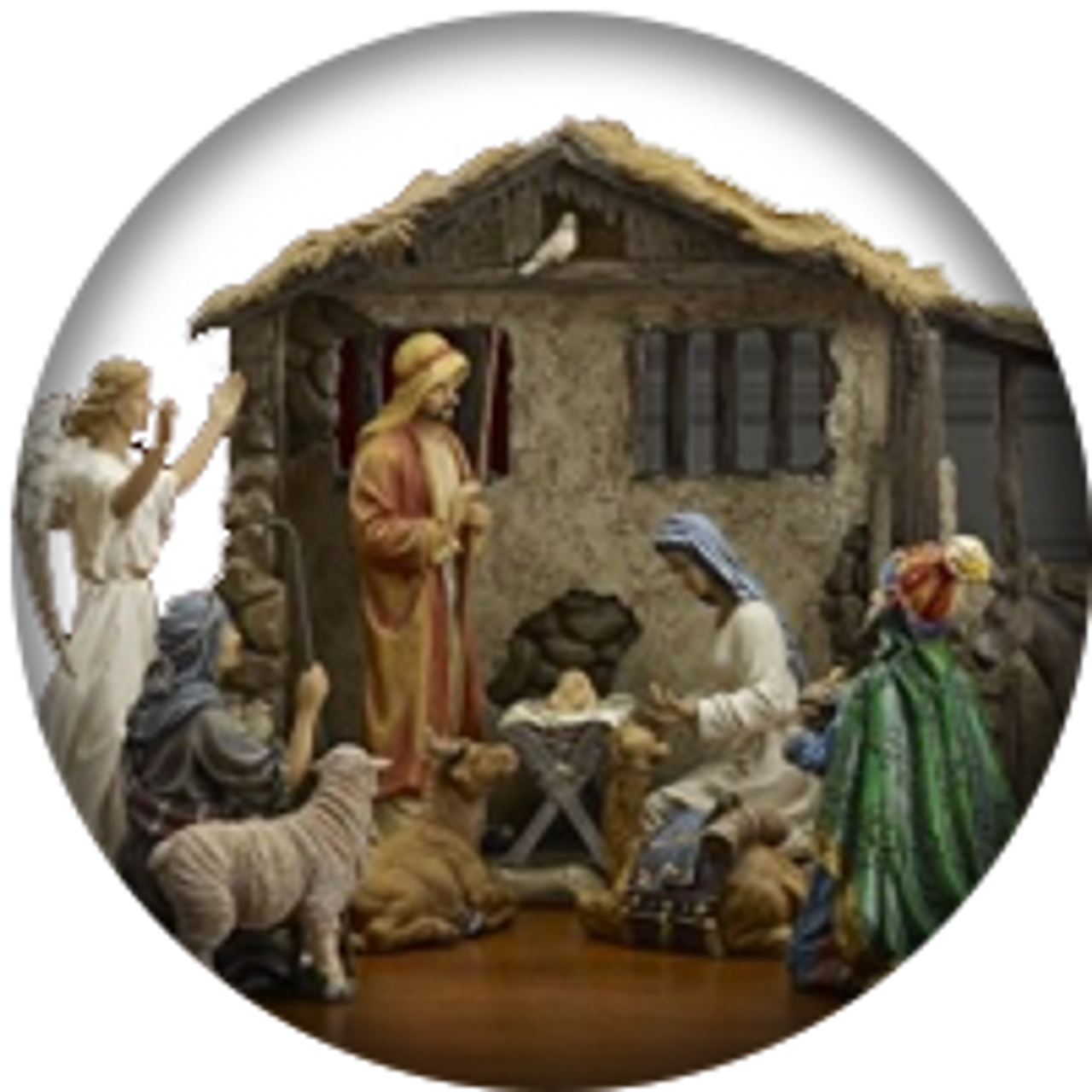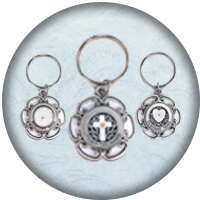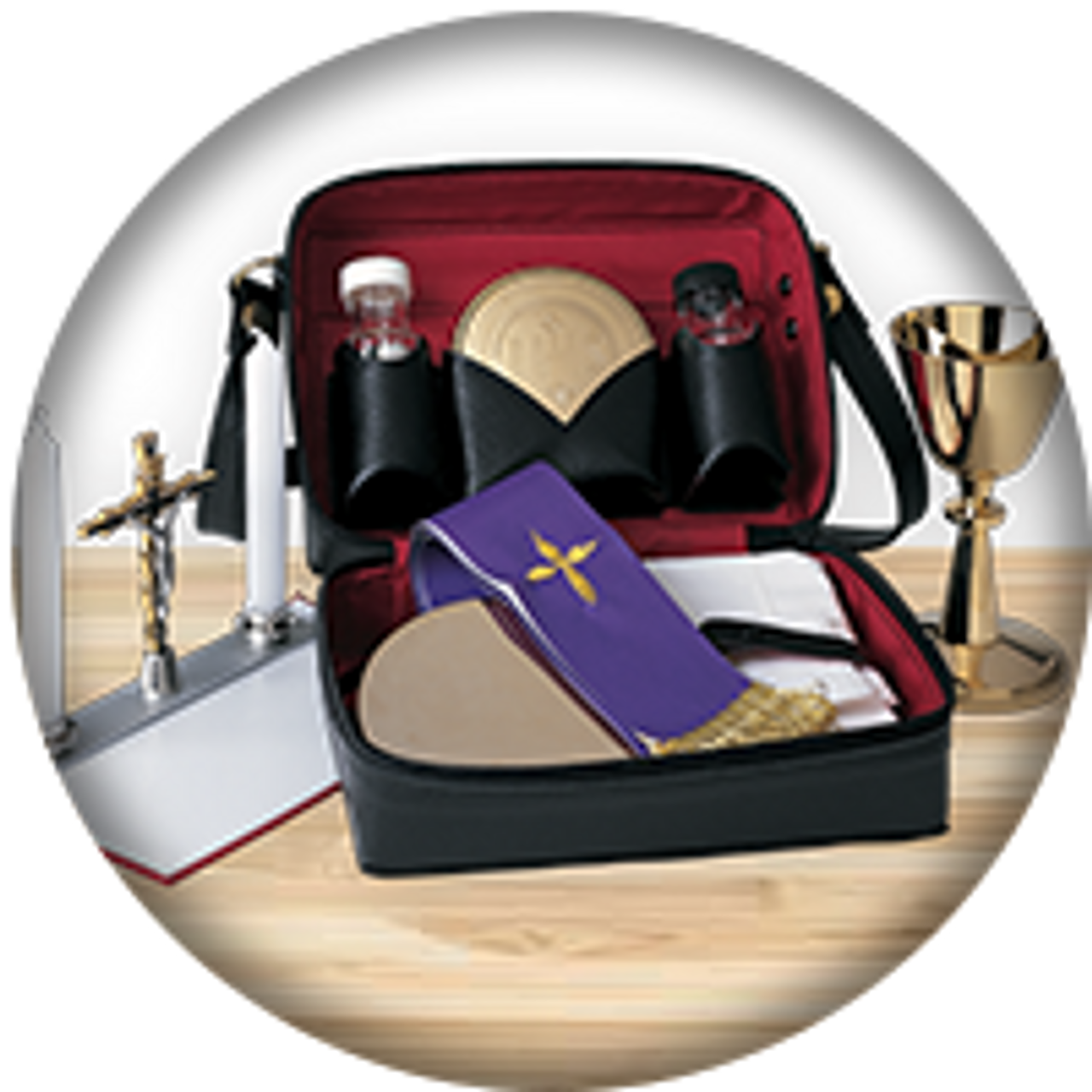THY KINGDOM COME series Part III: THE KINGDOM’S BLIND GUIDES
Kathy Boh on 22nd Nov 2019
THY KINGDOM COME series
Part III:
THE KINGDOM’S BLIND GUIDES
In this “THY KINGDOM COME” series we have observed some meanings of the term “king” and aspects of the kingdom of God—primarily as Jesus, Himself, taught. We looked at the implications in our honoring Jesus as King and we reviewed many scriptures about the kingdom. The Kingdom of God has One entry Door: the Person of Jesus Christ.
We continue to look at the kingdom of God—particularly at what blocks the way for us and what makes it difficult for us to enter. Almost all the scriptures are direct quotes from Jesus Christ, but the theme is continued through New Testament writings. St. Paul wrote many of the New Testament epistles, and he had intimate experience and knowledge of Pharisees, for he had been one. The Truth in the form of Jesus, Himself, set him free. Today’s article sheds some light on the religious life that Paul left behind to become a follower of Jesus Christ. We celebrate his conversion in January.
RAISE YOUR HAND IF…
Picture this: You are at a church liturgy, service or gathering. The pastor is giving an inspiring sermon—it’s interactive. He asks a few easy questions of the congregation, and then he asks (in a friendly voice with a big smile on his face) “…And how many Pharisees do we have here today? Feel free to raise your hands…” The congregation slowly starts to go quiet and show reluctance to raise their hands. Somehow, whatever descriptions the listeners vaguely remember (from Bible readings or church scriptures about Pharisees) keep them from eagerly shooting their hands up into the air.
The point is vividly made: “Pharisee” is not a label most of us want to identify with. In the past two parts of our series on THY KINGDOM COME, we have mentioned some scriptures and some characteristics of this group Jesus questioned, even though they were highly esteemed Jewish religious leaders in the Gospels. There must be good reason why Jesus continued in verse after verse to warn against these religious leaders. One reason was that they were neither good examples of the kingdom, nor helpful in teaching or training those who desired to come to Jesus—and come to the truth and love, salvation and healing, deliverance and blessings that Jesus Christ came and died to give.
St. Paul turned 180 degrees against his exquisite Pharisaical training and practice to follow Jesus Christ. Part III here looks deeper into how all this relates to the truth and life that Jesus came to give. It sets us up to understand St. Paul’s “about face.” See more details concerning his story in our previous blog article, FROM PHARISEE TO FOLLOWER, posted on trinitychurchsupply.com/blog on January 24th, 2019.
GOING TO HEAVEN?
Many people live their lives hoping and praying that heaven is their destination after this life. Some believe it is like a roll of the dice. Many believe that bowing to our Just Judge—our God and King— means that we live continually wondering what our eternal destination will be. Denominations vary on answers to this sensitive issue. Our objective is not to delve into Protestant vs. Catholic dogmas. There are many good and expert theological resources for that. We simply want to look briefly at some of what Jesus said that may help direct and comfort us. We can also gain much direction on what to avoid as we study some scriptures on what Jesus said makes us stumble. We can see what waylays our entrance into His kingdom.
What does Jesus say about heaven-- the kingdom of heaven? Earlier we mentioned that the kingdom of God and the kingdom of heaven are interchangeable and/or overlapping concepts, according to some scripture scholars. In this series, we have been describing and looking at what scriptures say about “kingdom” and Jesus as King and the concept of "king" in general. We found that we can make choices for His kingdom right here, in our own lives. In this blog article, we will look at the kingdom of heaven and more of what Jesus has to say about it.
What it takes to “go to heaven” is a concept that theologians of all kinds have argued and described and tried to identify for centuries. That is not the task of this series. We will, however, continue to look at the kingdom of heaven as Jesus and the Bible speak of it. In that way, we can give some description of how we can be part of that kingdom —as we live on earth. For instance, we could be British citizens with allegiance to the Queen of England, and still live in America. We can consider it as that "real", since Jesus described it as “near” and “at hand”, as we saw in earlier series articles.
Briefly recapping, those who are part of God’s kingdom are: followers of Jesus Christ. They choose Him, going through Him as the “door” of salvation. They love God (or honestly seek towards it) with their whole hearts. They seek to love God and to love others—as Jesus summed up the Law and the Prophets (see Part II). They move past “regret” and on to “repentance”: seeking to move toward a change of heart, and, from that, allow the Holy Spirit to help form “good fruit” [Gal 5:22-23] in them. They seek to choose actions that come deliberately from hearts that have chosen to love God first and others at least as much as themselves.
Many of us are accustomed to the liturgical and sacramental parts of a faith life—in both Catholic and some Protestant churches. Active Church members live and learn about those aspects of religion. The New Testament calls us to live with Jesus as our Lord and King—which is intended to be parallel to the choices and actions that are going on in each person’s inner life and relationship with God--even as that liturgical and sacramental life is lived out.
God knows our lives are lived 24/7. Outside (and inside) of the church building and church activities we are still called to live a life pleasing to Him. Who and what we allow to lead us, influence us, form us, and control us makes all the difference in the world—and in the “forever life” hereafter.
PHARISEES: HOW DO THEY FIT INTO THE KINGDOM?
The short answer is… not well. Perhaps, not at all.
The Pharisees have been mentioned in other parts of this series. In this Part III we will go into more detail—with many scriptures—showing how they related to the kingdom of God, and why Jesus (and John the Baptist) warned the people about them.
To give a thumbnail sketch:
The Pharisees were very good at detailed and duplicitous religious practice, emphasizing the less important items of their religious law and failing to practice the deeper, foundational and more important aspects of God’s law—particularly (agape) love, from the heart—according to Jesus.
There are some social factors that may enable this. The more complex that a culture or a religion (in its own sacred devotional spiritual life) gets, the easier it is to “look” and “feel” religious by having a lot of religious things to do that appear and feel pious. Jesus asked for serving "in secret" and not advertising the good things we do. That means that what we do is sometimes or often done unseen by others, or in private. Jesus said not to let the “right hand know what the left hand is doing.” Jesus asks for a following from the heart in living out our love for God and our love for others.
Jesus spoke about what comes from the heart in the book of Matthew:
“…The things that proceed out of the mouth come from the heart, and those defile the man. For out of the heart come evil thoughts, murders, adulteries, fornications, thefts, false witness, slanders. These are the things which defile the man; but to eat with unwashed hands does not defile the man.” [Mt 15:18-20]
Washing hands was part of Hebrew religious practice. But to fail to do even this wise and common religious ritual did not define the man as unholy. Jesus referred to the heart to show that God sees deeper than superficial actions.
In scripture, the heart is not the same as the “changeable, emotional” center we think of. It’s deeper and broader. It’s considered the source of human preferences, desires, etc. So “the heart” influences and/or rules over deeper life choices and decisions. God makes that clear through the Psalms and the prophets in the Old Testament when He spoke—many times— about the heart.
The Pharisees did not focus on loving deeply or truly. What they did have as their focus were many external religious deeds performed to be highly visible to others. This also fed their own self-righteousness —meeting their own criteria for feeling and appearing to be “good” and “righteous”.
In previous parts of this series, we have given scriptures about entering the kingdom of God, coming to Jesus to follow Him, and making Him King of our lives. We have seen that this involves hunger and seeking; humility; repentance and choosing to change; desiring the truth and new way in life in order to find the Way, the Truth and the Life. Those three words are capitalized because they are the very words Jesus chose to describe Himself.
LOVE FROM THE HEART—TOWARD GOD AND OTHERS
The love that Jesus described is not the same as the (very limited and only) emotional reaction of love, as our culture often sees it. He refers to a love that is agape [unconditional] love. The love Jesus asks for is a truly unselfish choice that comes from deep within. Choosing to love God, as Jesus taught, was described from early in God’s relationship with His people, Israel.
The kind of love God calls for is a major life-choice—and it’s part of living in the kingdom. “Moving” to the kingdom of God is as real and significant a choice as… say… moving to another neighborhood or state. The difference is, it's our hearts and minds that move. The changes are more internal, and not acted out with great fanfare. There is a new way of life to be learned, chosen and lived. Yet, we walk it out very much in this world.
“ ‘You shall love the Lord, your God, with all your heart, with all your soul and with all your mind’. This is the greatest and the first commandment. The second is like it: ‘You shall love your neighbor as yourself’. The whole law and the prophets depend on these two commandments.” Mt 22:37-40]. There is no greater commandment greater than these.” [Mark 12:31]
We are particularly to love and give care to the “least” and those in need, as many scriptures show. [see Mt 25:45-46] Scripture also tells us that if we do not love the brother (whom we see) then we cannot say that we love God (whom we do not see). So it's clear that we are to love both God and others.
The Good Samaritan parable shows us that, even when we are religious leaders or we minister in some way, we are still called to humble loving service. Even if we are on our way to “church”, we still need to prioritize loving compassion towards a stricken, injured, needy, unattended one—however inconvenient the timing is to our busy, important, religiously driven schedules. This parable illustrates that fact by the characters that Jesus chose to be the ones who passed the stricken man by without coming to his aid.
For those who actively lived out their love and religious profession, Jesus declared in these words:
“The king will say, ‘Inherit the kingdom prepared for you by my Father… for I was hungry… thirsty… a stranger… naked… ill… in prison… and you fed me… gave me drink…welcomed me… clothed me… cared for me’… The king will reply, ‘I tell you, whenever you did… you did it for me!” [Mt 25:34-40]
WHAT HINDERS US FROM THE KINGDOM?
What happens when we do the opposite? “ ‘I was a stranger… naked… sick…in prison… but you would not take care of me.’… The king will reply, ‘I tell you whenever you refused to help one of these least important ones, you refused to help me.’ “ This time, Jesus directly and plainly connected the kingdom of heaven with the reality of going to heaven or hell.“… and these will go off into eternal punishment [prepared for the devil and his angels] but the righteous to eternal life.’“ [Mt 25:41,43,45,46]
Again, much has to do with our hearts and our choices. Jesus knows that we will love and prefer some things and some people in this world over some others. To continue to choose our own selves and our self-oriented desires over those in greater need is to fail to love the way Jesus calls us to love others. When it comes to loving God, He is speaking to what we love "more" and "most". "Idolatry" is, basically, loving anything more than (or choosing anything above or in place of) God. What and whom we choose to love (more or most in any given situation) amount to important life-choices.
“How hard it is for those who have wealth to enter the kingdom of God!... It is easier for a camel to pass through [the] eye of [a] needle than for one who is rich to enter the kingdom of God.” [Mk 10:23-25]
“The Pharisees, who loved money, heard all these things and sneered at him. And he said to them, “You justify yourselves in the sight of others, but God knows your hearts; for what is of human esteem is an abomination in the sight of God.” [Luke 16:14-15]
And there is more about trouble entering the kingdom.
SOME SCRIPTURES ON THE PHARISEES
~~They criticized their forefathers saying that they, themselves, would have done things right.
“Woe to you, scribes and Pharisees, hypocrites! For you build the tombs of the prophets and adorn the monuments …and say, ‘If we had been living in the days of our fathers, we would not have been partners with them in shedding the blood of the prophets…. You serpents, you brood of vipers, how will you escape the sentence of hell?" [Mt 23]
~~They desired signs from Jesus as proof of Who He is. Signs, in themselves, are not an issue with a heart honestly seeking the truth. There are examples of signs given in the Bible. But the Pharisees were neither seeking to believe the truth, nor open to the truth. They were not open to Jesus, either (Who IS the Truth), so no amount of signs would have been enough....
“Then some of the scribes and Pharisees said to Him, “Teacher, we want to see a sign from You.” [Mt 12:38]
“The Pharisees and Sadducees came up, and testing Jesus, they asked Him to show them a sign from heaven." [Mt 16:1]
~~They accused Jesus of eating with sinners and not fasting enough.
“When the Pharisees saw this, they said to His disciples, “Why is your Teacher eating with the tax collectors and sinners?” [Mt 9:11]
“Then the disciples of John came to Him, asking, “Why do we and the Pharisees fast, but Your disciples do not fast?” [Mt 9:14]
~~They accused Jesus of casting out demons by the devil’s power.
“But the Pharisees were saying, “He casts out the demons by the ruler of the demons.” [Mt 9:34]
“But when the Pharisees heard this, they said, “This man casts out demons only by Beelzebul the ruler of the demons.” [Mt12:24]
“Then a demon-possessed man who was blind and mute was brought to Jesus, and He healed him, so that the mute man spoke and saw.” [Mt 12:22]
~~They said that Jesus’ disciples did not honor the Sabbath.
“But when the Pharisees saw this, they said to Him, “Look, Your disciples do what is not lawful to do on a Sabbath.” [Mt 12:2]
~~Jesus emphasized humility, not exalting oneself as Pharisees did.
"Do not be called leaders; for One is your Leader, that is, Christ. But the greatest among you shall be a servant. Whoever exalts himself shall be humbled; and whoever humbles himself shall be exalted.” .[Mt 23 10]
“Be on guard against the scribes, who like to go around in long robes and love greetings in marketplaces, seats of honor in synagogues, and places of honor at banquets. [Luke 20:46]
“All their works are performed to be seen. They widen their phylacteries and lengthen their tassels.” [Mt 23:5]
~~They sought to kill Jesus.
“ But as it is, you are seeking to kill Me, a man who has told you the truth, which I heard from God; this Abraham did not do. You are doing the deeds of your father [who is not Abraham as you say].” [Jn 8:40-41]
“You are of your father the devil, and you want to do the desires of your father. He was a murderer from the beginning, and does not stand in the truth because there is no truth in him. Whenever he speaks a lie, he speaks from his own nature, for he is a liar and the father of lies.” [Jn 8:44]
“But the Pharisees went out and conspired against Him, as to how they might destroy Him.” [Mt 12:14]
So they killed Him…
“I will no longer speak much with you, for the ruler of the worldis coming, and he has no power over Me… but … I do just as the Father has commanded Me.” [Jn 14:30]
~~They were conniving.
“Then the Pharisees went and plotted together how they might trap Him in what He said.” [Mt 22:15]
~~They failed to bring God’s ways of living in truth and love.
“Amen, amen I say to you, whoever does not enter a sheepfold through the gate but climbs over elsewhere is a thief and a robber.” [Jn 10:1]
“I am the door; if anyone enters through Me, he will be saved [will live], and will go in and out [freely] and find pasture. The thief comes only to steal and kill and destroy; I came that they may have life, and have it more abundantly [to the full, till it overflows].” [Jn 10:9-10]
“I am the Good Shepherd. A good shepherd lays down his life for the sheep.” [Jn 10:11]
OUR KING: CARING AND PROTECTIVE AS A MOTHER HEN
All the people Jesus came to save, and continually met in everyday life—in the marketplace, in synagogues, etc—were deeply felt by Jesus to be His flock. (He spoke about the Good Shepherd in the gospel of John chapter 10, as quoted above.) All their care (or lack of tender care, meaningful formation and loving, truth-filled teaching) deeply grieved Him.
Jesus told the people:
“The Pharisees have seated themselves in the chair of Moses; therefore all that they tell you, do and observe, but do not do according to their deeds; for they say things and do not do them.” [Mt 23:2]
He was grieved and sometimes angry at what He saw in the Pharisees… how they formed (or mal-formed) the attitudes, minds and hearts of those they led and taught. The Pharisees led the people in directions that too often were not loving… nor did they give the people the new “life” that Jesus desired to bring them. These teachers of the law put the people of God in danger of ‘absorbing’ the same attitudes and priorities that they had. [See “LEAVEN OF THE PHARISEES”—Part IV of this series, also posted today.]
Wisdom teaches us that what we learn is as much “caught” as “taught”. Attitudes and perspectives are particularly vulnerable to being “caught”. If fear or intimidation or guilt are included in the presentation, they become harder to resist. It is no wonder Jesus was concerned.
Jesus knew what His people experienced regarding religious leaders, for He, Himself, had received religious training. Even at 12 years old, He had deeply impressed the religious leaders in the temple. [Luke 2:41-52] Remember when He was “lost” and spending time there, after his parents went home thinking He was with them?
Jesus had multiple concerns: Not only were the Pharisees NOT caring for His sheep well, and not leading them toward love of God and others, nor helping their people (God’s chosen people) to do so, but they were keeping them from recognizing Who Jesus really IS, so that they could turn to Him and be saved, tended and well-formed.
Jesus also used the analogy of a mother hen:
“Jesus mourned and grieved over Jerusalem. He said, ‘Jerusalem, Jerusalem, who kills the prophets and stones those who are sent to her! How often I wanted to gather your children together, the way a hen gathers her chicks under her wings, and you were unwilling’.” [Mt 23:37]
In Part IV we will continue learning more about the Pharisees as we find just how much they interfered with His being able to gather the people under His protective leadership and care—like the Good Shepherd that He is and the “mother hen” analogy that He gave.
This blog series is based in large part on our previous series KINGS AND KINGDOMS, posted in January, 2019.










